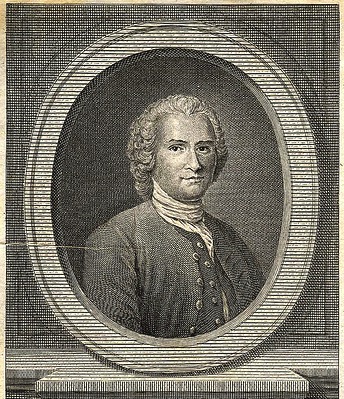Change the conversation, support rabble.ca today.
“The first person who, having enclosed a plot of land, took it into his head to say this is mine and found people simple enough to believe him was the true founder of civil society. What crimes, wars, murders, what miseries and horrors would the human race have been spared, had someone pulled up the stakes or filled in the ditch and cried out to his fellow men: ‘Do not listen to this impostor. You are lost if you forget that the fruits of the earth belong to all and the earth to no one!'”
– Jean-Jacques Rousseau
In his typically eloquent Discourse on the Origin of Inequality (1755), quoted from above, the philosopher Jean-Jacques Rousseau (1712-1778) contended that modern society had established a new, egocentric form of rationality that was consolidated by the institution of private property. Rousseau believed that prior to the development of modern rationality, humans possessed two essential qualities: self-love and compassion. With the introduction of private property, the emotional capacity for self-love was corrupted: spontaneous, authentic self-love became pride, a sentiment arising from the need to always seek the esteem of others. The overdevelopment of self-love undermined humanity’s second characteristic: empathy for others and nature.
With the new notion that humans could own land came an imagination that stressed an instrumental relationship to the external world and to other people. Alongside the psychic coarsening of egocentric rationality, the solidification of private property now legally entrenched the inequalities between rich and poor. For Rousseau, humans were fundamentally noble, but private property’s buttressing of inequality contaminated humanity’s natural dignity. He noted that the egocentrism introduced by instrumental rationality and private property had resulted in a self-destructive split: the courtesy that characterized social interaction now cloaked a perpetually calculating self-interest. Modern man walked the streets wearing an invisible mask that hid his thoughts from others and to some degree from himself. Cultivating others’ high opinions had become more pressing than developing one’s own virtue.
Rousseau’s analysis of inequality became a driving theory behind the French Revolution because unlike Adam Smith he suggested that egotism was socially constructed and not humanity’s ineluctable nature. Rousseau argued this by comparing traditional societies to modern, Western nations, asserting that the latter, with their notion of private property and their egocentric rationality, had lost the purity, empathy and fundamental tranquility that permeated the non-modern world.
Some social theorists, like Nietzsche in the past and the French New Right thinker Alain de Benoist in the present, see the origin of the egalitarian impulse in the New Testament notion that everyone, affluent or indigent, has an immortal soul; for this reason de Benoist has referred to Christianity as “the Bolshevism of antiquity. “Although the religious origins may have emerged 2,000 years ago, the social theoretical analysis of inequality was most influentially articulated by Rousseau. The philosopher’s conception of human nature, his critique of private property and his attack on modern, instrumental rationality were revolutionary attacks on the hegemonic thinking of his time and were recognized as such: the revolutionaries in France disinterred his body, took the remains, and buried them in the Panthéon in Paris, France’s mausoleum to its national heroes, 16 years after the writer’s death.
Rousseau’s ideas, whether acknowledged or not, have permeated Western counter-hegemonic, progressive thought — modern and postmodern — for the last 250 years. Some have emphasized his focus on private property as the agent of inequality, while others have focused on his preoccupation with modern rationality as the culprit. Both of his concerns lie intertwined at the root of Occupy’s repudiation of Wall Street and thus help us understand the movement’s popularity among progressives of all apparently diverse, antagonistic stripes.
Thomas Ponniah was a Lecturer on Social Studies and Assistant Director of Studies at Harvard University from 2003-2011. He remains an affiliate of Harvard’s David Rockefeller Center for Latin American Studies and an Associate of the Department of African and African-American Studies.



